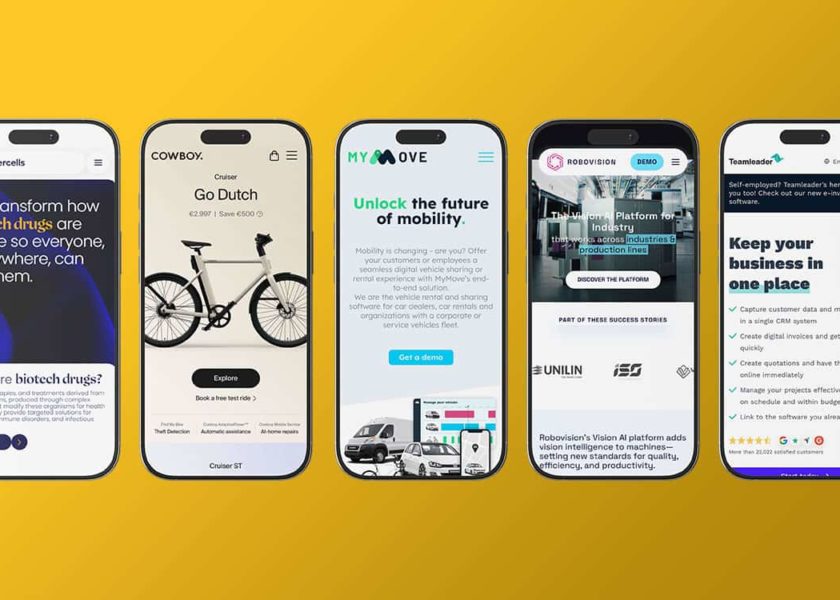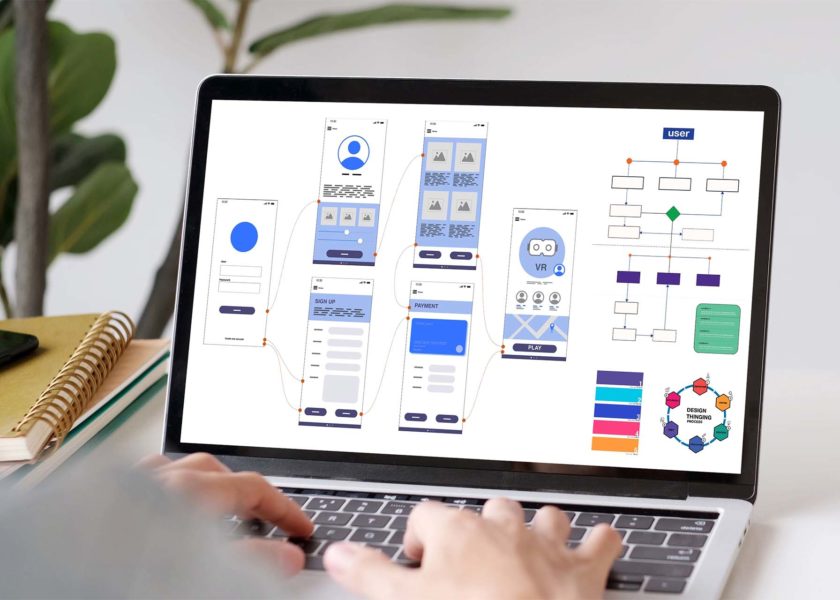The year 2024 marked a turning point for startups active in artificial intelligence (AI). Driven by major technological advances and renewed investor interest, these innovative companies have become key players in the digital world.
In 2025, this dynamic seems to be intensifying, with promising prospects and new challenges. What lessons can we learn from 2024, and what can we expect in 2025? Discover in this article an in-depth analysis of the major trends and developments to come.
1. Investment growth
Enthusiasm for artificial intelligence has never been greater. In 2024, European AI startups attracted record investment, testifying to renewed investor interest after years of economic uncertainty. In Belgium, the sector’s dynamism was particularly notable, with several significant fundraisings confirming the country’s growing role in the European technology ecosystem.
The reasons for this growth:
The rapid progress of generative AI technologies has demonstrated their potential in a wide range of fields, boosting the attractiveness of innovative projects.
The growing adoption of AI solutions in European companies, notably to automate processes or optimize data management, has reassured investors.
Regional and European initiatives, such as technological innovation funds, have helped to support local startups in their growth phase.
Examples of concrete impact
- Health: MoveUP, a Belgian startup, has transformed the field of rehabilitation by combining AI and connected health. Its platform accompanies patients after surgery and optimizes results through personalized follow-up, reducing costs for hospitals.
- Mobility: Cowboy, which integrates AI algorithms into its electric bikes, optimizes battery performance while offering improved navigation and connectivity for urban users.
- Industry: Robovision helps industrial companies automate product inspection using AI and computer vision, reducing errors and boosting productivity.
Predictions for 2025:
In Europe and Belgium, investments are set to continue, with priority given to projects aligned with market expectations, combining technological innovation with solid business models. Startups able to prove their concrete impact in sectors such as healthcare, mobility or industry will have a significant competitive advantage.
2. The rise of generative AI
In 2024, artificial intelligence technologies capable of generating content – be it text, images or even video – experienced a rapid development. These advances have redefined possibilities in fields such as marketing, media and digital creation, while opening up new perspectives for more traditional sectors such as education and healthcare.
Some noteworthy applications:
Europe, including Belgium, has seen the emergence of ambitious initiatives in this field. Startups have distinguished themselves by proposing innovative solutions adapted to specific needs:
- Tailor-made content generation for brands: Belgian startups such as Faktion are developing AI solutions to help companies produce personalized, automated content on a large scale. For example, their algorithms enable the generation of targeted marketing campaigns based on the analysis of customer behavior.
- Immersive media creation: Sentiance is a very good example of a company that uses AI to analyze user behavior and create immersive experiences tailored to their needs.
- Design of interactive educational tools: In education, European companies such as Century Tech are starting to integrate AI to personalize learning paths. These tools tailor educational content to each learner’s strengths and weaknesses, increasing engagement and improving academic results.
However, this growing popularity also raises ethical questions about intellectual property and misuse, issues that will remain central in 2025.
Predictions for 2025:
As generative AI continues to gain in maturity, companies that know how to exploit these tools in a targeted and ethical way, while taking new regulations into account, should establish themselves as benchmarks in their respective fields. Innovations focused on precision, personalization and accessibility will be particularly sought-after.
3. Integration of AI by companies
Companies are adopting artificial intelligence at an unprecedented rate. Far from being confined to isolated or experimental projects, AI is now being integrated into critical processes, whether to automate repetitive tasks, optimize data management or support decision-making. This trend reflects a growing need for efficiency and agility in an increasingly competitive economic environment.
According to McKinsey, 50% of European companies already use at least one AI solution in their internal processes, compared with 39% in 2022.
Why is this trend accelerating ?
- Increasingly accessible tools: AI solutions are designed to integrate easily with existing systems, considerably reducing technical barriers.
- A quest for efficiency: Automating business processes enables companies to reduce costs while improving performance.
- A strategic challenge: In sectors such as logistics, finance and commerce, adopting AI has become an important lever for staying one step ahead of the competition.
A key role for specialized startups:
In Belgium, innovative players (such as Robovision, quoted above) play a crucial role in overcoming the challenges of AI integration. These startups act as facilitators, offering tailor-made solutions to meet organizations’ specific requirements.
- Optimization of data flows to accelerate AI projects and guarantee reliability.
- Seamless integration of intelligent technologies into existing tools (ERP, CRM, etc.).
- Customized training programs to help teams fully exploit new solutions and maximize their impact.
Predictions for 2025:
AI adoption is set to intensify further, driven by increasingly simple and scalable solutions. In Belgium, this dynamic could consolidate the country’s place as a key player in European innovation, with local startups playing a decisive role in this transformation.
4. Economic challenges and financial pressures
Despite record investment and growing adoption, artificial intelligence remains a challenging field for many startups. In 2024, some companies had to deal with a more complex reality than expected: longer sales cycles, saturated markets and increased competition.
The reasons for these tensions:
- A competitive environment: The growing number of players in the AI market generates constant pressure to innovate and differentiate.
- High expectations: After ambitious financing phases, investors are now demanding concrete proof of profitability and impact.
- Slow adoption cycles: Integrating AI into certain industries requires organizational adjustments, which can slow down rapid adoption.
How startups react:
Faced with these constraints, many companies are adapting their approach by focusing on:
Specific niches: Rather than targeting a broad market, startups focus on specific issues to maximize their impact. Univercells, for example, has made its mark by developing biotech solutions to produce low-cost vaccines, meeting a global need.
Resource efficiency: Rigorous cost management and refocusing on strategic priorities have become essential.
Collaboration: More and more partnerships with established companies enable start-ups to benefit from existing networks and accelerate their adoption.
Predictions for 2025:
The most resilient startups will be those that strike the right balance between innovation and pragmatism. In Belgium and Europe, companies able to demonstrate rapid financial viability, while meeting clear needs, should attract additional funding and establish themselves as benchmarks.
5. Regulations and ethics: an evolving framework
The rise of artificial intelligence raises increasingly pressing questions about ethics and regulation. In 2024, these concerns were widely debated, prompting governments and organizations to strengthen regulatory frameworks around AI.
The major challenges identified:
Algorithm transparency: companies need to demonstrate that their AI solutions are free from bias and operate fairly, particularly in sensitive sectors such as recruitment or finance.
Data protection: the use of AI often relies on massive volumes of personal data, raising growing concerns about privacy and security.
Misuse: generative AI, for example, can be exploited to produce deepfakes or misleading content, requiring additional safeguards.
Europe on the front line:
In Belgium and the rest of Europe, initiatives have been launched to regulate the development and use of AI. Regulations such as the AI Act aim to set strict standards to ensure responsible and ethical use, while leaving room for innovation.
Predictions for 2025:
The regulatory framework is likely to continue to intensify, requiring startups to be even more vigilant in the design and deployment of their solutions. Those who integrate ethics into the development phase will have a competitive advantage, strengthening the trust of users and partners.
A pivotal year and opportunities to seize
Artificial intelligence continues to profoundly transform industries, and the trends observed in 2024 testify to the scale of its impact.
In 2025, the opportunities remain immense for startups capable of combining innovation, pragmatism and responsibility. Those who can demonstrate their ability to meet market expectations while adapting to ethical and legal requirements will be best placed to stand out from the crowd.



